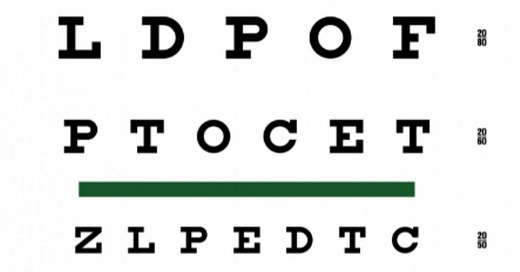Local Governments Are Spending Tax Money to “See Through the Lens of Race”
An organization called GARE is promoting race-based policies to local government.
A couple years ago, I emailed Justin Wilson, the Mayor of the City of Alexandria, Virginia, and asked him about the City’s “Racial Equity Initiative.” (As explored in previous essays, “equity” means guaranteeing certain outcomes based on race on the false assumption that all disparities among groups based on race are caused by racism.) The mayor referred the question to Jean Kelleher, the Director of the City’s Office of Human Rights. She responded to me with this email:
I replied as follows:
Director Kelleher, thank you for responding to my inquiry #192972. The website for the Government Alliance on Race & Equity (GARE) makes clear that it focuses on racial equity, and that any benefits to others will only follow from first focusing on race exclusively. GARE’s manuals are replete with references to its exclusive “centering” on race, stating, for example:
“We have intentionally lifted up the importance of centering racial equity within an RBA [Results-Based Accountability] framework. We have seen too many cases where not doing so reinforces structural racism. Many planning or evaluation tools were designed within environments of institutional or structural racism. When we fail to name and center race, though we may be well-intentioned, we will reinforce racial inequities. Getting clear about racial equity first, then using a powerful tool like RBA flips the status quo on its head–it shifts the power to drive toward racial equity. Only through the use of a structured process will we achieve transformative results, shifting the very foundation of the institution we seek to change. By developing a clear racial equity lens first, we provide a foundation for a racial equity-centered RBA process that facilitates improved results … Indicators are large-scale measures like unemployment rates, chronic disease rates, or academic achievement rates. Because of the scope and scale of the collection, population level data often comes from federal, state, city, or county government or agencies, university partners, or Census data. Once the group has identified the indicators that they would like to measure, partners should be identified to decide: (a) how to get this data, (b) how it can be disaggregated by race and ethnicity, and (c) with what regularity the data can be produced.”
Given that, my question is: What justifies the “intentional lifting up” and “centering of race” over other criteria not based on race? And as I understand from your response that the Race and Social Equity Initiative is “race explicit,” which race (or races) is the initiative focusing on? Many thanks again for your time and consideration.
https://www.racialequityalliance.org/about/our-approach/race/
I never received a response to that email. But it struck me that in his last rally before his election to the office of Virginia Governor, Republican candidate Glenn Youngkin gave his own response. He said:
We will teach all history, the good and the bad … But let me be clear: what we won’t do is teach our children to view everything through the lens of race, where we divide them into buckets; one group’s an oppressor and another group is the victim; and we pit them against each other … We know it’s not right. We know in our hearts it’s wrong. We are all created equal and we’re trying so hard to live up to those immortal words of Martin Luther King Jr., who implored us to be better than we are; to judge one another based on the content of our character and not the color of our skin.
As Andrew Sullivan writes, “To me, Youngkin’s rhetoric sounds like … well, to be honest, Barack Obama, in its balance.”
Now contrast Youngkin’s rhetoric – “what we won’t do is teach our children to view everything through the lens of race” – with that of GARE, which encourages localities to “build a foundation using a racial equity lens.”
The City of Alexandria is a “Core Member” of GARE, and as a Core Member the City (with over 1,000 employees) apparently pays GARE annual dues of $5,000. That’s a lot of money for a blue city to contribute to the Glenn Youngkin campaign.
You might check to see if your locality is also paying GARE to help it implement policies that apply a “racial lens.” The last thing a colorblind society needs are government officials seeing “R A C E” at the top of every eye chart.




